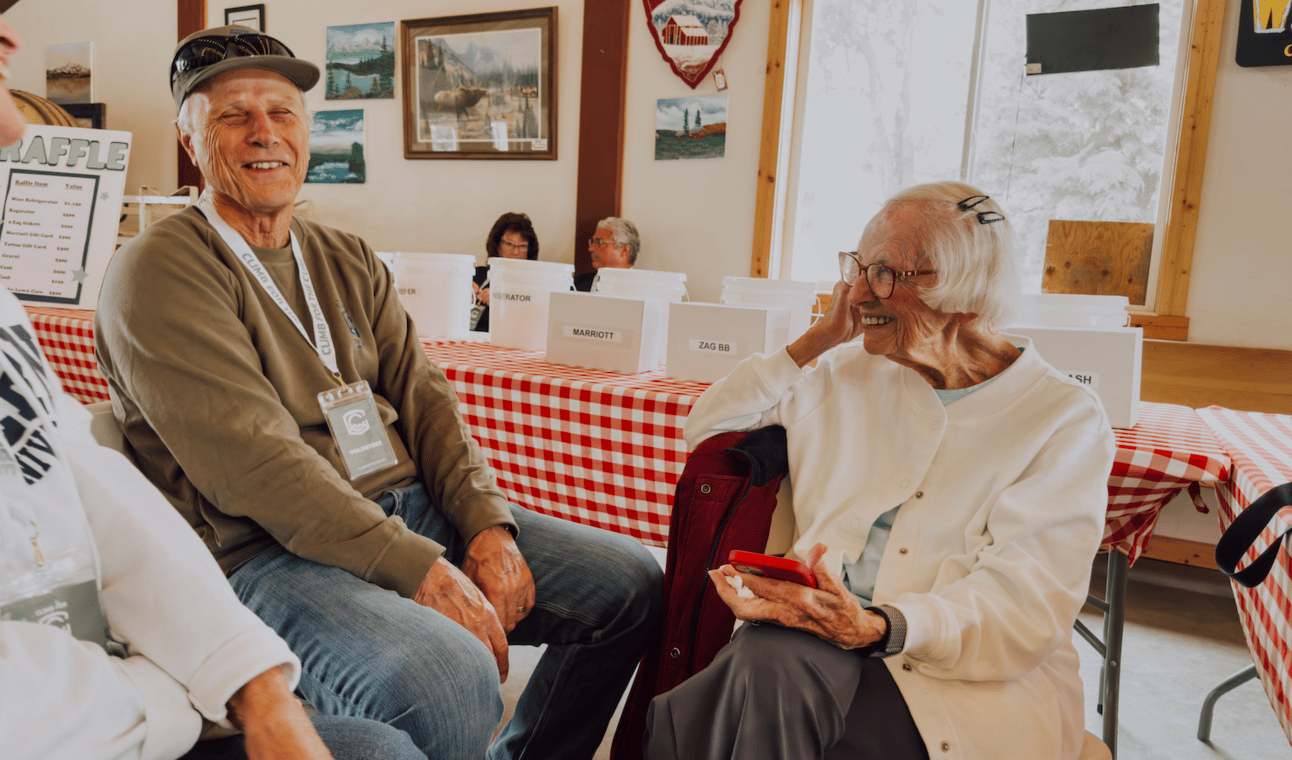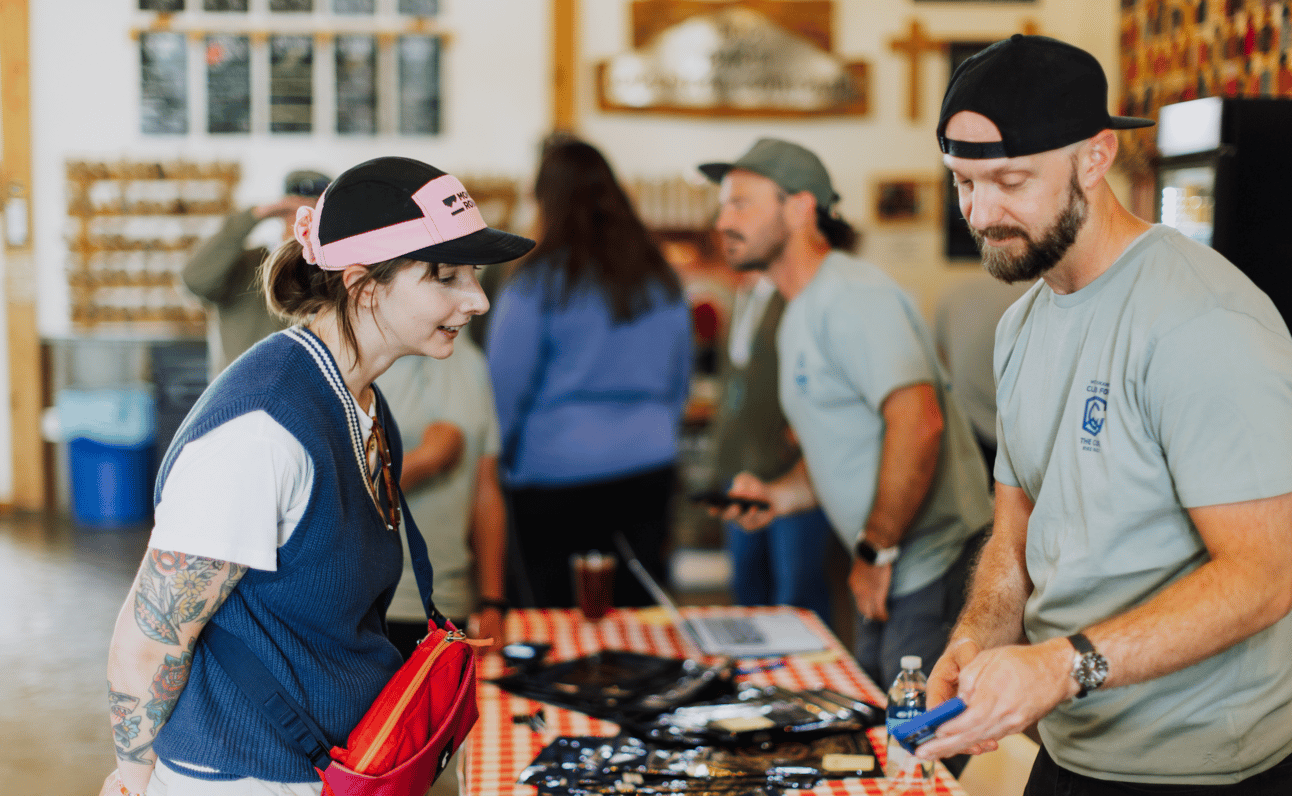- Revenue Diaries
- Posts
- Revenue Diaries Entry 35
Revenue Diaries Entry 35
Inside: On Legacy, Sobriety, and the Stories We Don’t Tell During Our Climb to the Top
I usually kick this thing off with some thoughts on marketing, leadership, or whatever AI has broken this week. But not today.
This weekend, I’m writing about something that’s been sitting with me since yesterday morning in Spokane, WA. It has nothing to do with funnels or frameworks. It has everything to do with legacy, identity, and the gap between what people see and what’s actually going on underneath.
Let’s start here:

Grandma Joan
On Witnessing Your Legacy at 95
Yesterday, I had the absolute pleasure to be out in Spokane, WA (the place of my birth) to volunteer for Climb for the Cure, an annual gravel bike race we host in memory of my Aunt Wendy (I wrote about her legacy in entry 10). It raises money for cancer research, but it’s more than a fundraiser.
It’s family. Most of the crew is here. Grandkids. Great-grandkids. In-laws. Neighbors who feel like cousins. Cousins who feel like best friends. Everyone is pitching in to make sure this race happens.
But the Queen of the race, the ultimate Race Marshall, is my 95-year-old grandmother, Joan Robertson.
She sat quietly, taking it all in. Watching people she helped raise, raise tents… move tables.. Set up signs… coordinate volunteers… shepherd riders to the staging zone… helping with parking.
And introspective me couldn’t help myself, she wasn’t just watching us all work, she was watching her legacy. Not in the abstract way we usually mean when we say the word “legacy.” Not in the bullshit way for a headstone. She was seeing it, living it.

I can’t stop thinking about what that must feel like.
Because when you’re younger (hell, even now at 41), legacy is a far-off concept. Something to build someday. Something we might earn after we’ve worked hard enough or lived long enough. But I think we’ve got it wrong.
Legacy isn’t something you leave. It’s something you witness (if you’re lucky).
You witness it when your kids show up for each other, when your grandkids get up early to run a water station for an insane bike race.
When the values you live quietly and consistently come back around in someone else’s voice, effort, and actions.
You witness it in a 50-mile bike race up a mountain in the PNW.
You witness it in the way people remember.
We remember Aunt Wendy because she made things happen. She made people feel included. She was funny, thoughtful, and always sincere. Her love wasn’t loud, but it was unmistakable. You knew where you stood with her. And you showed up because she did.
That spirit is everywhere at this event. It’s baked into the damned gravel. And watching my grandmother take it all in, seeing what she built, without ever asking for credit, was one of those moments that slows time for me, and I’ve had quite a few of those lately.
It’s made me consider:
What am I building?
Will I be proud of it when I’m 95?
Will my kids be proud of it?
Would Wendy be proud of it?
I’ll never really know. But I do know this. I hope one day, I get to experience this. And maybe, if I’ve done something right, I'll see a little bit of myself in the people around me.
Here’s to the great and powerful, Grandma Joan!
♥️kyle
On the Part You Don’t See
Many of you know (or know of) Scott Barker. I’ve known Scott for a while, and wrote about him back in Entry 32. He’s one of those rare people you meet who manages to be sharp, generous, and deeply honest.
He recently announced that he’s selling everything he owns and traveling the world for an undetermined amount of time. Not because he’s lost. But because he’s realigned.
He’s stepping away from the endless cycle of more… more stuff, more work, more chasing, and choosing to redesign his relationship with success and fulfillment. Sounds amazing right?
Well, I was lucky enough to join him on his new podcast last week (publish date forthcoming). We talked about career, leadership, sobriety, parenting, and the gap between what people think is happening in your life and what’s actually happening.
So this week, I want to share a version of what we discussed. I will not give away the entire conversation, just a sneak peek.
What You Already (Probably) Know
On paper, it’s a straight shot: marketing roles, leadership positions, now CMO at Docebo. I’ve worked with incredible teams at Lessonly, Seismic, Jellyfish, and a few other stops along the way. I run a podcast haphazardly, write this newsletter, and have had the privilege of helping build some very real momentum at companies I care about.
Most people see the LinkedIn version of that story. But behind all of it?
The Part You Don’t See
There were years I was chasing something I couldn’t name.
I worked harder. Said yes more often than I should have. I tied my identity to my title and my performance. If work was going well, I was doing well. If I missed a target, if a campaign fell flat, if I didn’t get the recognition I thought I deserved? All hell broke loose. Mostly in my brain, and it festered. It hit deeper than it should have.
And there was drinking. Not in a dramatic, rock-bottom kind of way—but in a subtle, numbing way. Just enough to blur the edges. Enough that I started to notice it was changing how I showed up at home, with my kids, with my team.
There’s a story I shared with Scott: July 4th 2024. It had been a great day. We had hosted a bunch of friends at our house, set off fireworks, burgers/brats, beer, and fun. And the party had transferred down the street to another house.
I don’t remember leaving our friend’s house. Nothing terrible happened, but I had stumbled home with my family, and couldn’t remember a thing. No bueno.
That was a small moment, among many, where I realized something had to change.
The Shift
It took a hot second, but I stopped drinking on July 25, 2024. That one choice triggered a cascade of other changes.
I started writing again, every week, without fail. Thanks for reading. :) The newsletter became a place to tell the truth. Not the polished version. The real version.
I started restructuring how I work. I stopped pretending I could separate “personal” and “professional.” I got honest about the fact that being a better dad made me a better
CMO. Being a more present person made me a more thoughtful leader.
It’s about asking the right question: Why am I doing this?
And I started paying attention. To the laughter. The small moments. The cracks forming. The parts of me that needed care, not just ambition.
If you’ve followed this newsletter for a while, none of this will surprise you. I’ve been leaving breadcrumbs for months. But if you’re new here, let me say this clearly:
Reinvention isn’t a dramatic pivot or a once-in-a-lifetime opportunity. It’s a choice we make when the life we’ve built no longer reflects the life we want.
Sometimes, the hardest part isn’t changing. It’s admitting we need to.
Thanks again to Scott for creating space to talk about this stuff. I’ll be sharing the full episode when it’s available.
